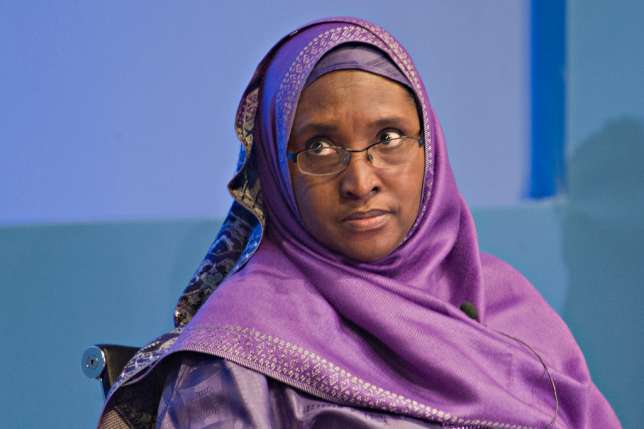Recession Will Be Short-Lived — Finance Minister
The Federal Government on Thursday said Nigeria’s current recession will be a short-lived recession.

The Minister of Finance, Budget and National Planning, Zainab Ahmed, stated this while briefing State House correspondents at the end of the virtual meeting of the National Council of State presided over by President Muhammadu Buhari.
Nigeria had recorded a -6.1 decline in Gross Domestic Product (GDP) in the second quarter of 2020, pushing the country back into recession.
Ahmed said that the current coordinated efforts of the Federal Government to contain COVID-19 pandemic and the N2.3 trillion economic stimulus plan will reposition the economy on a sustainable part of rapid recovery.
The minister, represented by Director-General, Budget Office, Ben Akabueze, said she briefed the council on the trouble facing the economy, arising from the drop in crude oil price and the COVID-19 pandemic.
She said the essence of the briefing at the Council of State meeting was to bring members up to date on the state of the economy, the reforms being initiated by the Federal Government to address the challenges the country was facing as well as provide some perspective on the micro-economic outlook on the economy.
She said: “The key message is that the Nigerian economy is currently facing serious challenges, with the macro economic environment significantly disrupted by the COVID-19 pandemic. And globally, it has been a very challenging time for economies. The global economy is in recession currently.
“Basically, for the Nigerian economy, our exposure to economic shortfall manifests in the following areas – export earning fluctuations, reliance on import to service substantial part of our expenditure and needs, whether energy, food or industrial supplies, our reliance on export to finance the import and lack of diversification, especially in terms of resources of government revenue.
“The vulnerabilities we face pre-COVID-19 have been exacerbated by the onset of COVID-19 and the Nigerian economy is disproportionately vulnerable to the twin shock of oil price collapse as well as health crisis because of our over-dependent on oil revenue and the low levels of foreign and domestic investments as well as the decline in foreign reserves.
“All of this is at a time the fiscal buffers are currently lean and the developments in the world oil market further make it difficult to rebuild those buffers this time, the foreign reserves, the excess crude account or the sovereign wealth fund.
“Recently, the Nigeria Bureau of Statistics, NBS, released our Q2 2020 GDP report which showed that for second quarter 2020, GDP growth was negative of 6.1 percent, bringing cumulative half year 2020 GDP growth to – 2.1 percent.
“However, it is noteworthy that Nigeria GDP performance was better than major economies.
“Real GDP growth for full year 2020 is being projected at -4.2 percent by the NBS, but for 2021, we are projecting a recovery of 3.3 percent. This is consistent with the mass recoveries projected across different countries and other regions of the world.
“Inflation is expected to remain above single digit over the medium term, given the structural issues impacting in the course of doing business, including the high cost of food distribution. And overall our fiscal risks are somewhat elevated likely due to COVID-19 related disruptions which have exacerbated the structural weaknesses in the economy.
“We continue to face significant challenges, especially with respect to revenue generation and that is why the key reforms, such as the strategic revenue growth initiative that the Minister of Finance, Budget and National Planning is driving hard will continue to be implemented with increased vigour.
“The implementation of the reverse 2020 budget will also be accelerated. Capital releases which stood at N445 billion at the end of June before the reverse budget was passed, is now up to N1.2 trillion.
“The current coordinated efforts of the Federal Government to contain COVID-19 pandemic, especially the N2. 3 trillion economic stimulus plan, would reposition the economy on a sustainable part of rapid recovery, though it’s likely that the Q3 GDP growth will be negative, which means relapsing to a recession, our hope is for a short-lived recession.”


Comments are closed.